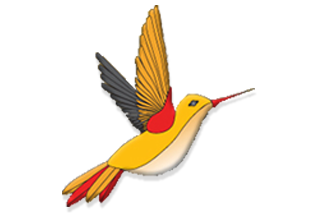Could You Eliminate Discomfort?
/Is Happiness the Point?
What if you could find a way to eliminate discomfort from your life?
I’ve been contemplating this question as a result of a conversation with a long-time friend whose mother has Alzheimer’s disease. He has long described his mom as a chronic complainer, a woman with a long history of reasons for her unhappiness that largely involve finding fault with others. At one point, I even remember him saying, “If it weren’t for bitterness, she wouldn’t know what to do with herself.”
Yet his recent report on the progression of his mother’s disease is that she is the happiest she has ever been, apparently because she has simply forgotten all the grievances she has long held. He’s quite happy for her, and frankly he’s pleased he no longer has to endure her complaining. My friend may be dutiful in attending to his mother, but he has held quite a few resentments about her as a result of her incessantly bitter and unpleasant remarks.
Regardless, she’s happy, and he’s happy, so where’s the problem?
Well, isn’t discomfort, or discontentedness the source of our drive to learn, grow and overcome? If we really could find a way to eliminate discomfort, would that undermine our own development? And of even greater relevance, is the point of our lives to be happy and comfortable, or is it to learn and grow? Would we seek improvement in our lives and world if it weren’t for unhappiness of one kind or another?
Rather than discuss this as a philosophical matter, I find myself looking to my own experience. As a result of recovery from alcoholism I have found tools for living that have greatly increased my feeling of contentment. And meditation in many forms brings great solace. So too does the ability to focus on meaningful work, often with the growth and development of others.
At the same time, the suffering of alcoholism was no doubt the greatest opportunity of my life. It made me willing and open to possibilities that led to recovery. Two painful divorces drove me into deep explorations of myself, which have proven to bear great fruit. Failings in my career brought all new possibilities, and a livelihood that is far better than any I may have imagined.
Everywhere I look it is clear to me that pain and discomfort are great gifts. And that comfort can actually become a source for complacency and stagnation. Still, there is a great desire to be comfortable, isn’t there?
I must admit I find this matter to be a bit exasperating. Must I retreat from the human desire for comfort at the expense of progress with human development? Or does a drive to make progress guarantee discontent?
What if the ultimate outcome is to embrace both by understanding that our inherent nature is to grow, and that comfort creates complacency, and yet were it not for increasing comfort with ourselves and our lives, we would have no apparent benefit for striving? What if in so doing we normalize that every station of life is temporary, and that at our best we must necessarily alternate between pressing forward and ceasing our efforts to enjoy the fruits of our labors?
Perhaps we were designed by life for dynamism, and to always be seeking our next stage of development.
Seeing True in Action
When is the last time you engaged in a significant effort to overcome some challenge, something that produced frustration, disappointment, discomfort or unhappiness?
When is the last period of comfort you enjoyed, and for how long?
If you are in relative comfort currently, can you look ahead to see your next developmental undertaking? On the other hand, if you are currently engaged in striving, is there an apparent future point you can anticipate where respite will be possible?
If the idea of effort or the idea of relaxing is disturbing to you, what might be a source of your fears?














